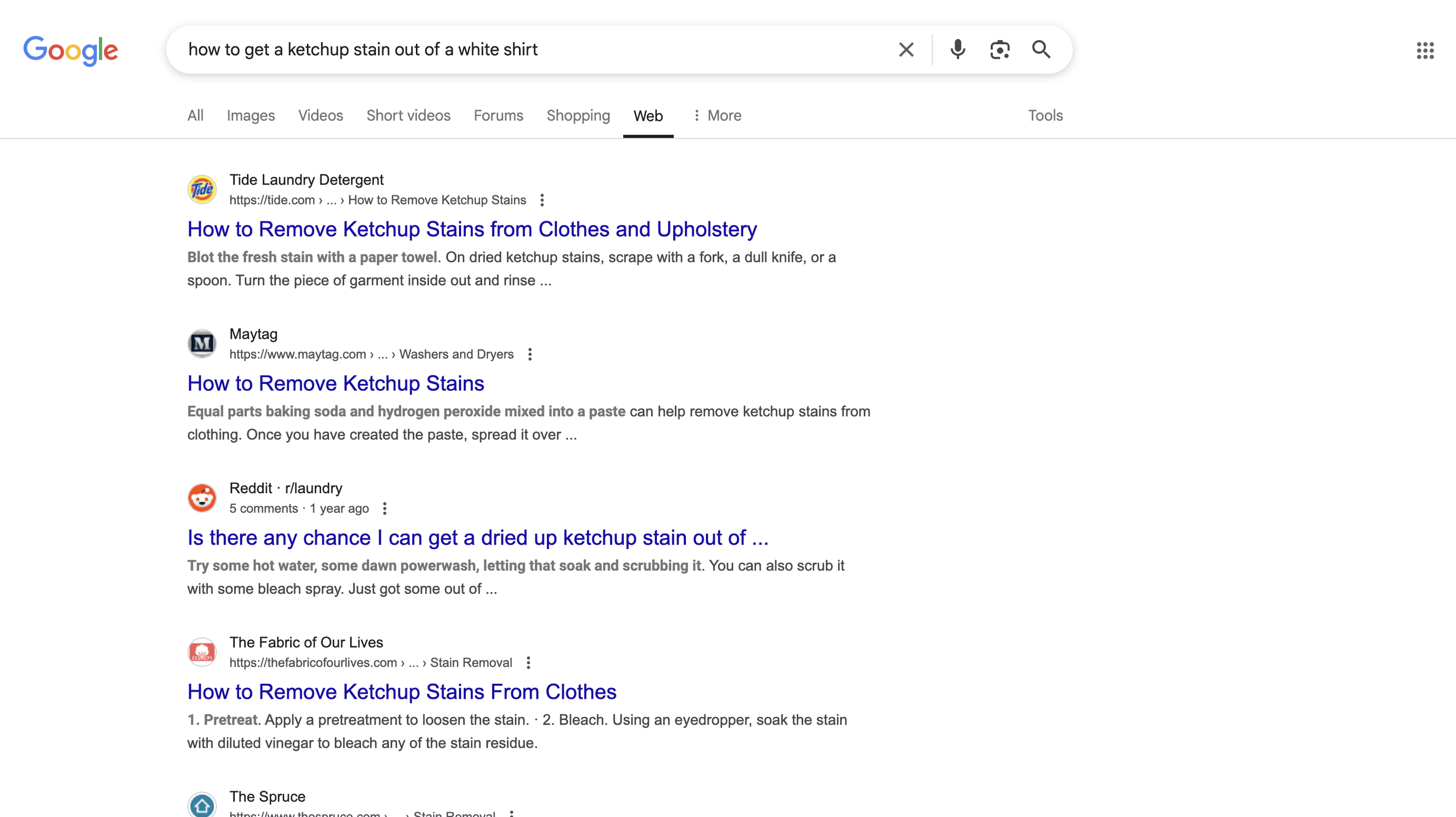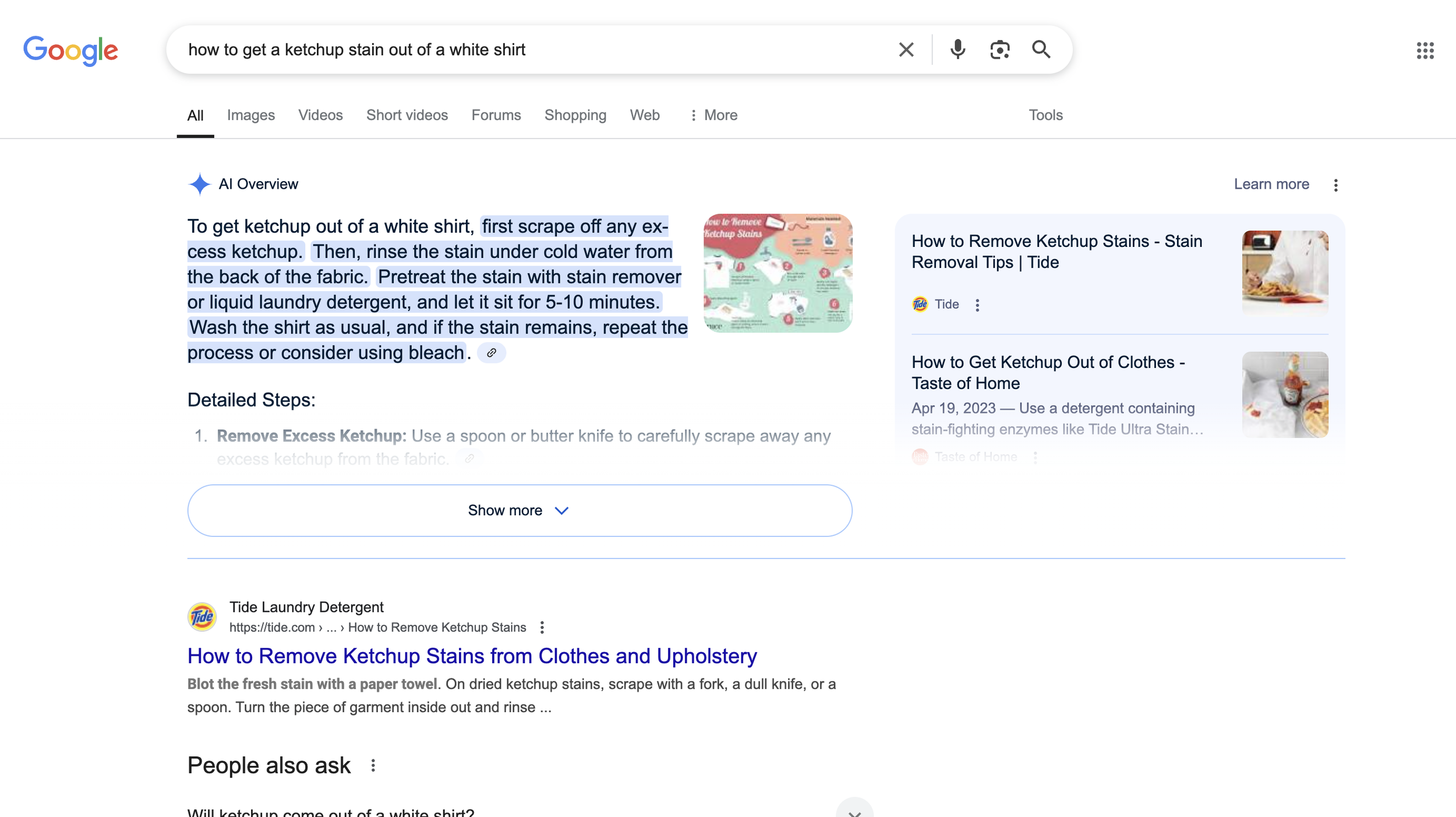AI Summaries Are Reshaping Search Results: What Your Growing Business Needs to Know
Remember when you'd type a question into Google and get a neat list of blue links? Those days are fading faster than my houseplants when I forget to water them for a week. (And believe me, those poor plants have seen some things.)
If you've done any searching lately, you've probably noticed something different happening at the top of your results: entire paragraphs of information appearing before you even click a link. Welcome to the age of AI summaries—and they're changing everything about how people find (or don't find) your business online.
What Exactly Are These AI Summaries?
AI summaries (or "AI Overviews" as Google calls them) are exactly what they sound like: artificial intelligence-generated paragraphs that attempt to answer your query directly in the search results, without requiring you to click through to a website.
These aren't your grandmother's featured snippets (those little answer boxes that have been around for years). AI summaries are longer, more comprehensive, and pull information from multiple sources at once.
Here's what they typically look like:
Above: A traditional search results page vs. one with an AI Overview. Notice how the AI summary pushes down all the organic results.
While Google's version is the most prominent (it was previously called SGE or Search Generative Experience), you'll also find similar AI-generated answers on Bing with their Copilot integration and increasingly across other search platforms.
How Does AI Decide What Goes Into These Summaries?
I wish I could tell you there's a secret handshake or magic keyword that guarantees your content gets featured, but alas, it's more complicated than that.
Here's what we do know about how these summaries work:
The AI pulls information from multiple websites it considers trustworthy and relevant
It synthesizes this information into a coherent answer
It typically includes citations or links to sources (though not always prominently)
Not every search triggers an AI summary—they appear most often for informational queries (how-to, what-is, etc.)
The AI isn't playing favorites—it's looking for the clearest, most helpful content to summarize. In theory, at least. In practice, it seems to have a crush on certain authoritative sites, especially for complex topics.
The Double-Edged Sword for Growing Businesses
Now for the million-dollar question: is this good or bad for your business?
The answer is... it's complicated. (Isn't it always?)
The Concerning Part
Fewer clicks to your website: When people get their answer directly in search results, they may not feel the need to visit your site at all.
Reduced visibility: AI summaries take up prime real estate on the page, pushing organic results further down.
Attribution issues: Sometimes your content might be summarized without clear credit to your business.
The Opportunity Side
Brand visibility: Getting cited in an AI summary can put your brand name in front of searchers even if they don't click.
Authority building: Being featured suggests Google considers you a trustworthy source.
Different search strategies: While some informational queries may get fewer clicks, people still search with commercial intent when they're ready to buy.
For service-based businesses (like many of you reading this blog), there's a silver lining: complex services and personalized solutions aren't easily replaced by an AI summary. In regards to my own business -- a summary might explain what SEO is, but it can't do a customized audit of your website or create a strategy tailored to your unique business needs.
First Steps to Prepare Your Content
Before you start panicking or completely overhauling your content strategy, here are some practical steps you can take:
Answer questions directly and clearly:
Don't bury the answer to a common question under paragraphs of fluff. If someone asks "what's the best accounting software for small businesses," give them that answer right away before diving into the nuances.
Use helpful headers and structure:
Break your content into logical sections with descriptive headers. This helps humans scan your content, and it helps AI understand what you're talking about.
Include factual information with context:
AI loves to summarize facts, data points, and straightforward information. Make sure yours is accurate and provides context about why it matters.
Focus on your unique perspective and experience:
What can you offer that an AI summary can't? Your stories, specific experiences, and nuanced understanding of your industry are impossible to replicate.
Remember, the goal isn't to trick the AI—it's to provide genuinely helpful content that serves your audience whether they find it through an AI summary or by clicking through to your website.
What's Next?
In my next article in this series, I'll share real data and examples showing how traffic and visibility are shifting—and what types of content are still performing well despite these changes. (Spoiler alert: it's not all doom and gloom!)
I'd really enjoy hearing your experiences too! Have you noticed AI summaries appearing for searches related to your business? Have you seen changes in your traffic patterns? Feel free to email me with your thoughts—I love hearing anecdotal stories about the impact of AI.
Not Sure Where You Stand?
If you're wondering whether your content is AI-friendly or how these changes might affect your specific business, I'm here to help. Book a 30-minute SEO Assessment call where we can look at your site together and identify your biggest opportunities in this changing landscape.


